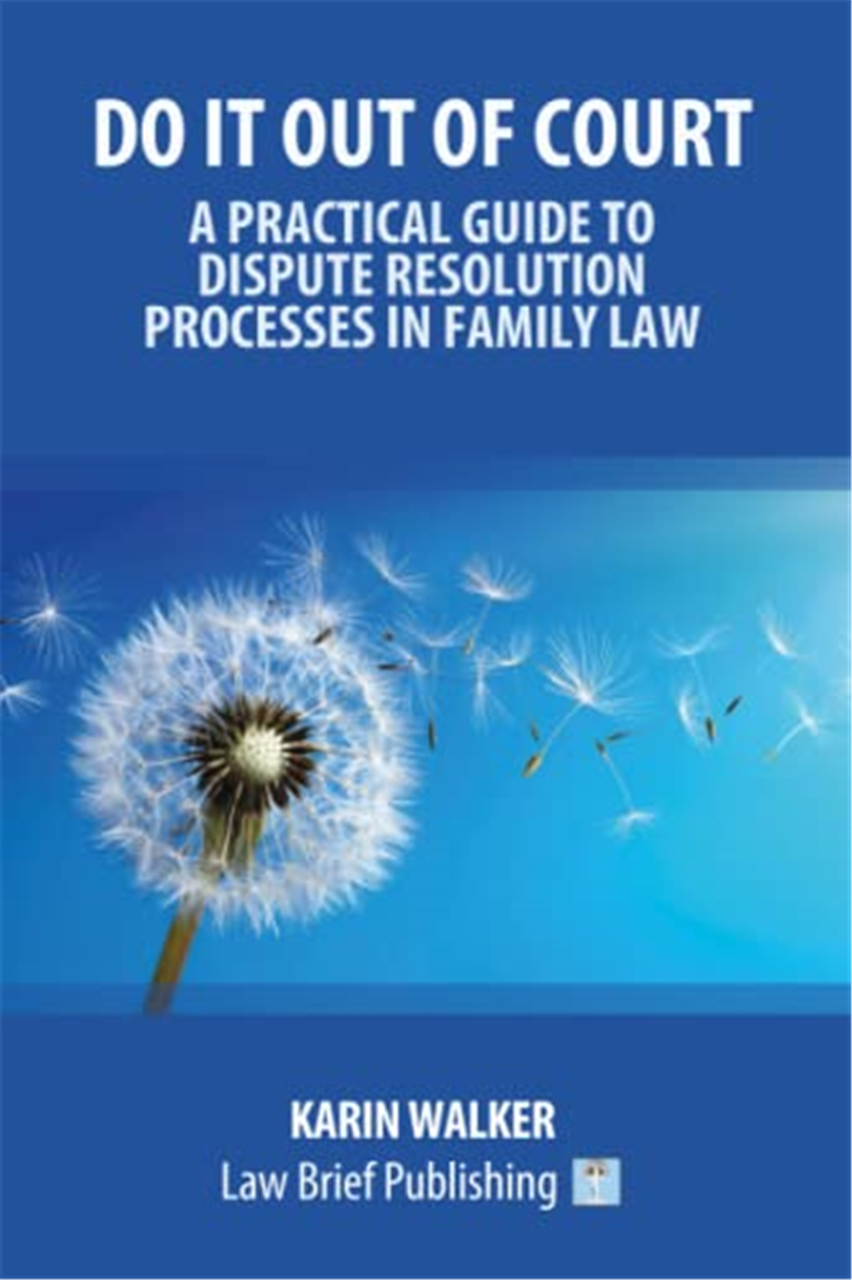
DR Corner: Review of Do It Out of Court – A Practical Guide to Dispute Resolution Processes in Family Law
Published: 03/07/2023 08:00

Karin Walker (Law Brief Publishing, 2023)
This is a concise and informative book aimed at family law practitioners with little or no experience in out-of-court dispute resolution methods. The guide is divided into two sections, with the first section focusing on essential considerations such as new divorce legislation, client expectations and various out-of-court dispute resolution methods. The second section explains the out-of-court options in detail, including mediation, neutral evaluation, arbitration and the Certainty Project.
The book’s author acknowledges the crisis within the court system and urges practitioners to explore alternative dispute resolution methods. The guide aims to assist practitioners in keeping clients away from the court process and finding the most appropriate process for their specific requirements. The author seeks to inspire practitioners’ interest in and enthusiasm for out-of-court dispute resolution methods, helping them to become exceptional family practitioners who can adapt to changes in family law practice.
The author highlights the emotional strain that accompanies most separations and the mistaken belief that courts provide justice and retribution. The author notes that separating couples need affordable access to information about their rights and obligations when their relationship ends, as well as guidance on how to achieve an outcome that is reasonable for both parties and meets their family’s needs. The book provides practitioners with advice on how to guide their clients through this difficult process.
The guide focuses on practical considerations, including things to consider before meeting a new client, and explores the pressures and considerations that family law practitioners face. The guide highlights the tension between the desire to create a reputation as a ‘champion’ in the court arena and the need to meet time and cost targets in a more efficient and effective way.
The guide covers several forms of dispute resolution in family law, including neutral evaluation, collaborative practice, private financial dispute resolution (pFDR) and arbitration. The chapters provide valuable insights into the different forms of dispute resolution in family law, including their benefits and limitations. The author explains each method’s process, making it easy for readers to understand how it works and whether it may be suitable for their situation. The guide highlights the importance of selecting the right professional who possesses the necessary skills to deal with the specific issue, inspires confidence in the couple and suits the case’s budget.
The book is well-organised and easy to navigate, providing a practical overview of out-of-court options. The guide provides essential information for clients seeking alternative dispute resolution methods, and it is also useful for anyone who is considering different forms of dispute resolution in family law and wants to make an informed decision. The text is relevant and up to date, providing information on the new divorce legislation and other aspects of family law practice.
Although the book is concise, the chapters provide useful information on different forms of dispute resolution in family law. However, some aspects of the process are not covered in detail, such as how the arbitrator is selected, how the couple can be involved in the selection process and what happens if the arbitrator feels unable to continue working with the couple. Nevertheless, the book serves as a basic guide to the various out-of-court dispute resolution options.
In conclusion, Do It Out of Court – A Practical Guide to Dispute Resolution Processes in Family Law is a valuable resource for family law practitioners seeking to expand their knowledge of out-of-court dispute resolution methods. The guide provides insights into the benefits and limitations of each method and is easy to navigate, making it a practical and accessible tool for practitioners and clients alike. While the book may not cover all aspects of each method in detail, it provides an excellent starting point for anyone considering alternative dispute resolution methods in family law out of court and this book can help the inexperienced practitioner in particular.







